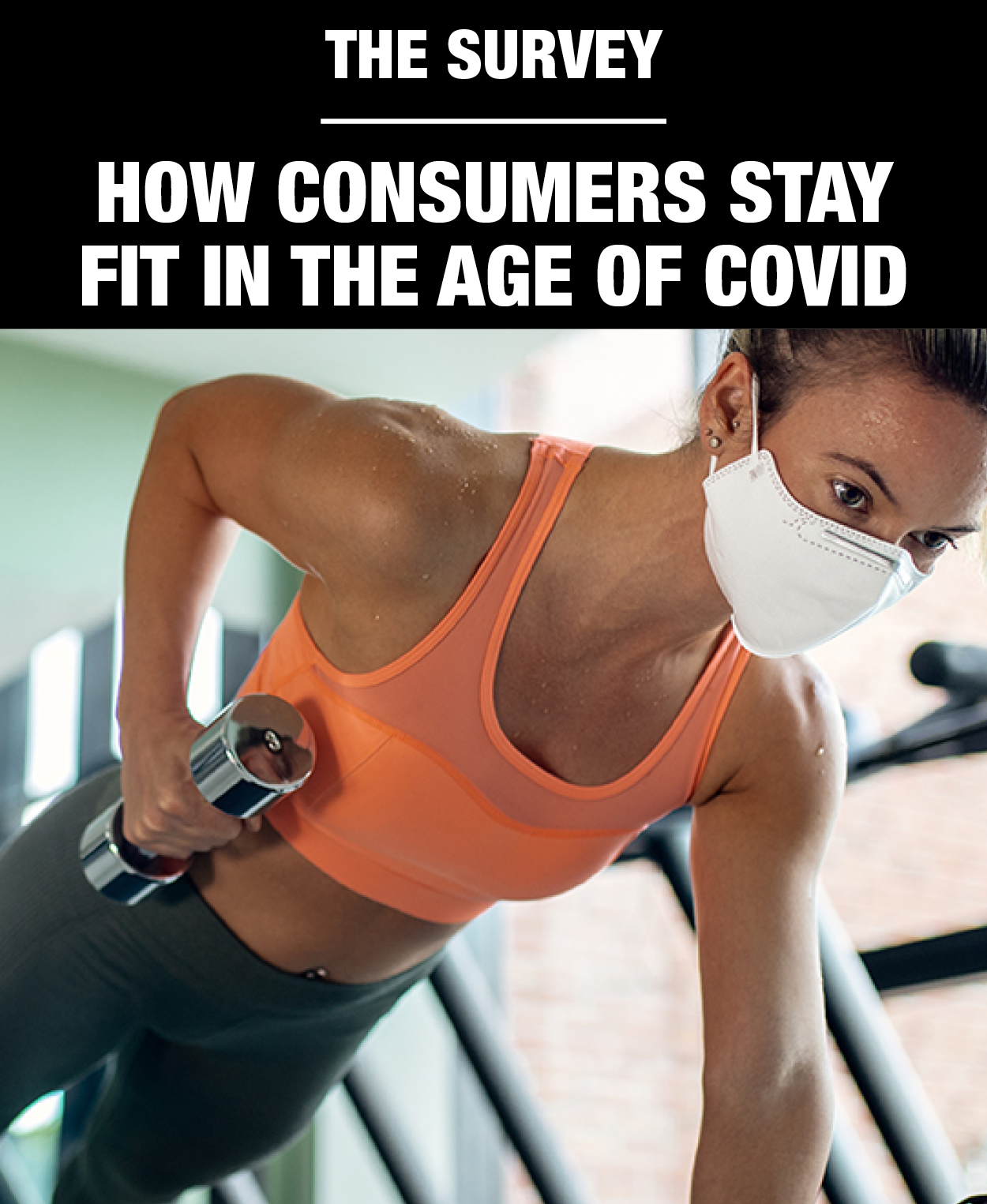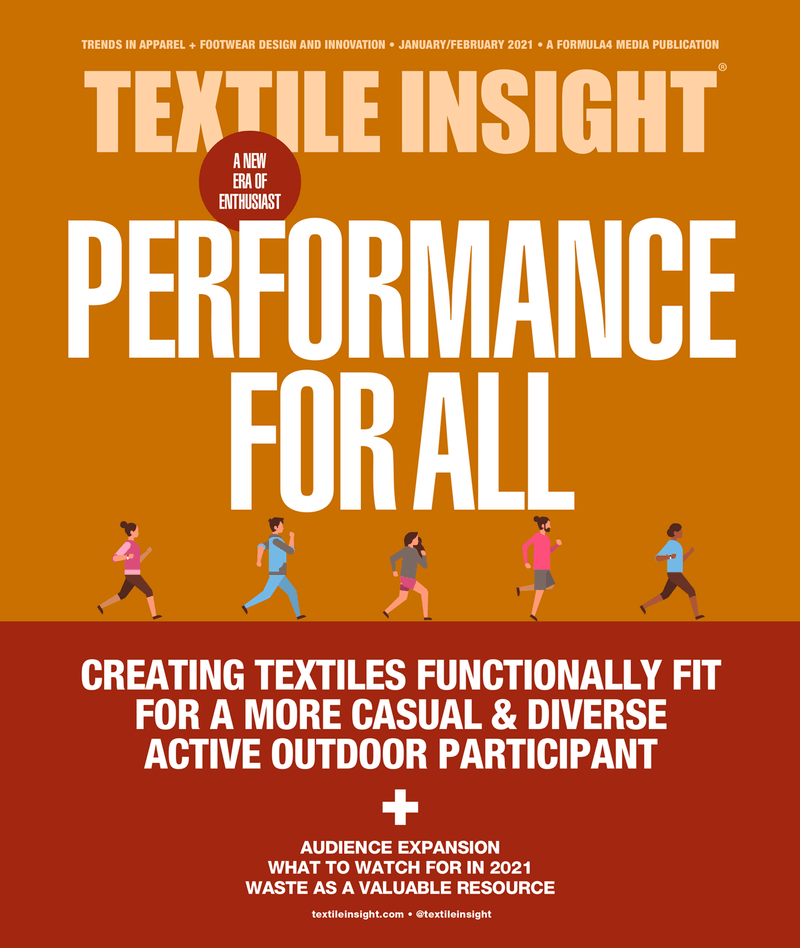
While the pandemic has put a hold on many positive aspects of everyday life, exercise is an exception. Trying a new sport, purchasing new gear and making face coverings a new part of an activewear wardrobe emerged as key aspects of the 2020 COVID-19 experience. Only three percent of survey respondents replied “No” when asked, “did you purchase any apparel, footwear or related gear for a new sport or fitness activity in 2020.” And even these individuals explained, “But I rented gear for that sport activity.” Whether actually worn or not, face coverings are now recognized as a lifestyle item, with 54 percent of survey takers stating that a face covering is “an essential part of their active wardrobe.” When purchasing a mask, “fit” was a top priority in decision-making, with “fabric” ranked second. Interestingly, with all the talk about antimicrobials in the age of COVID, just six percent of individuals surveyed highlighted “antimicrobial” as a characteristic influencing their face covering purchase.
The survey, conducted by MESH01, included 373 respondents, men and women, ages 18 to 60 who identify themselves as active and outdoors.












